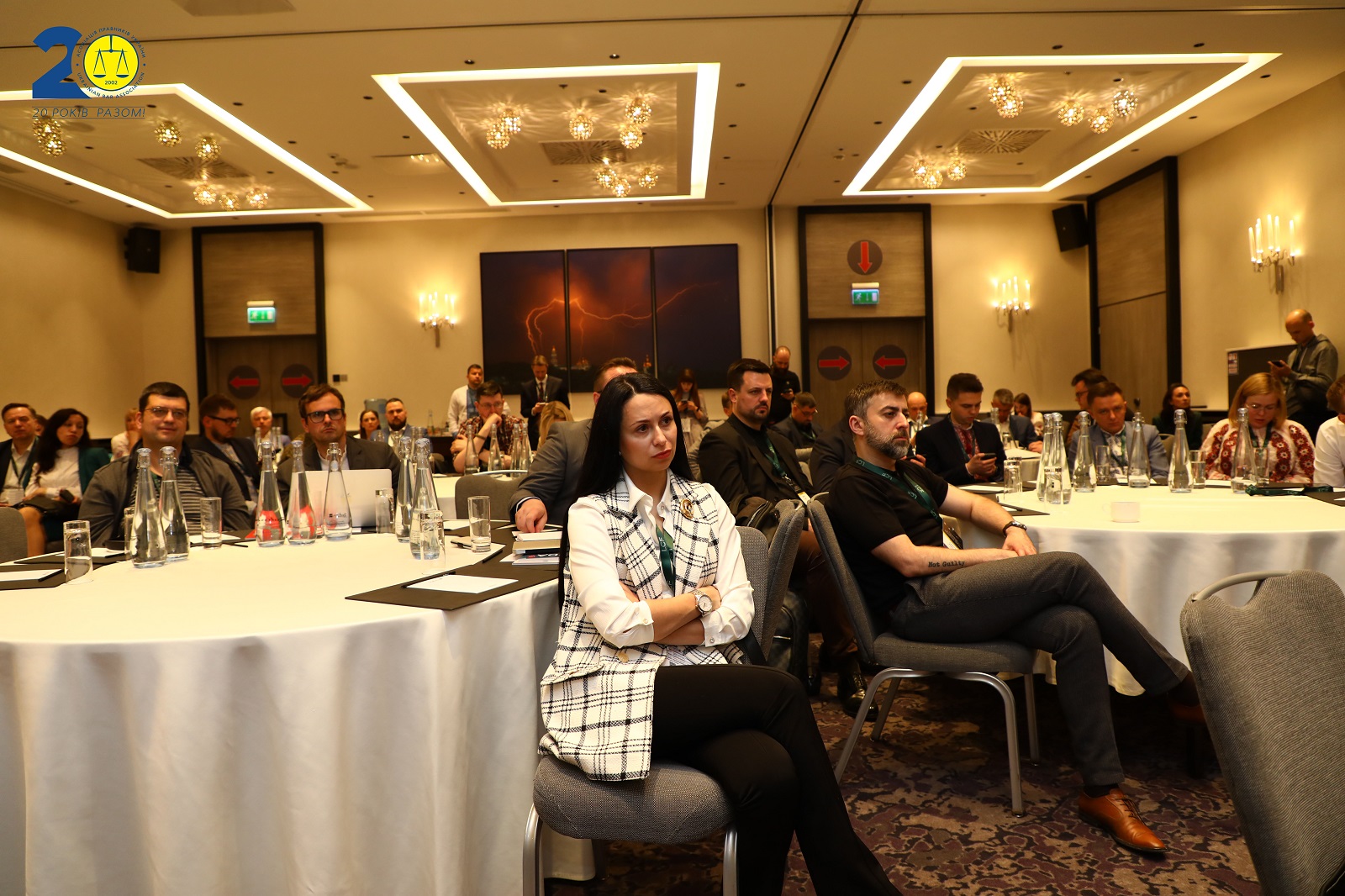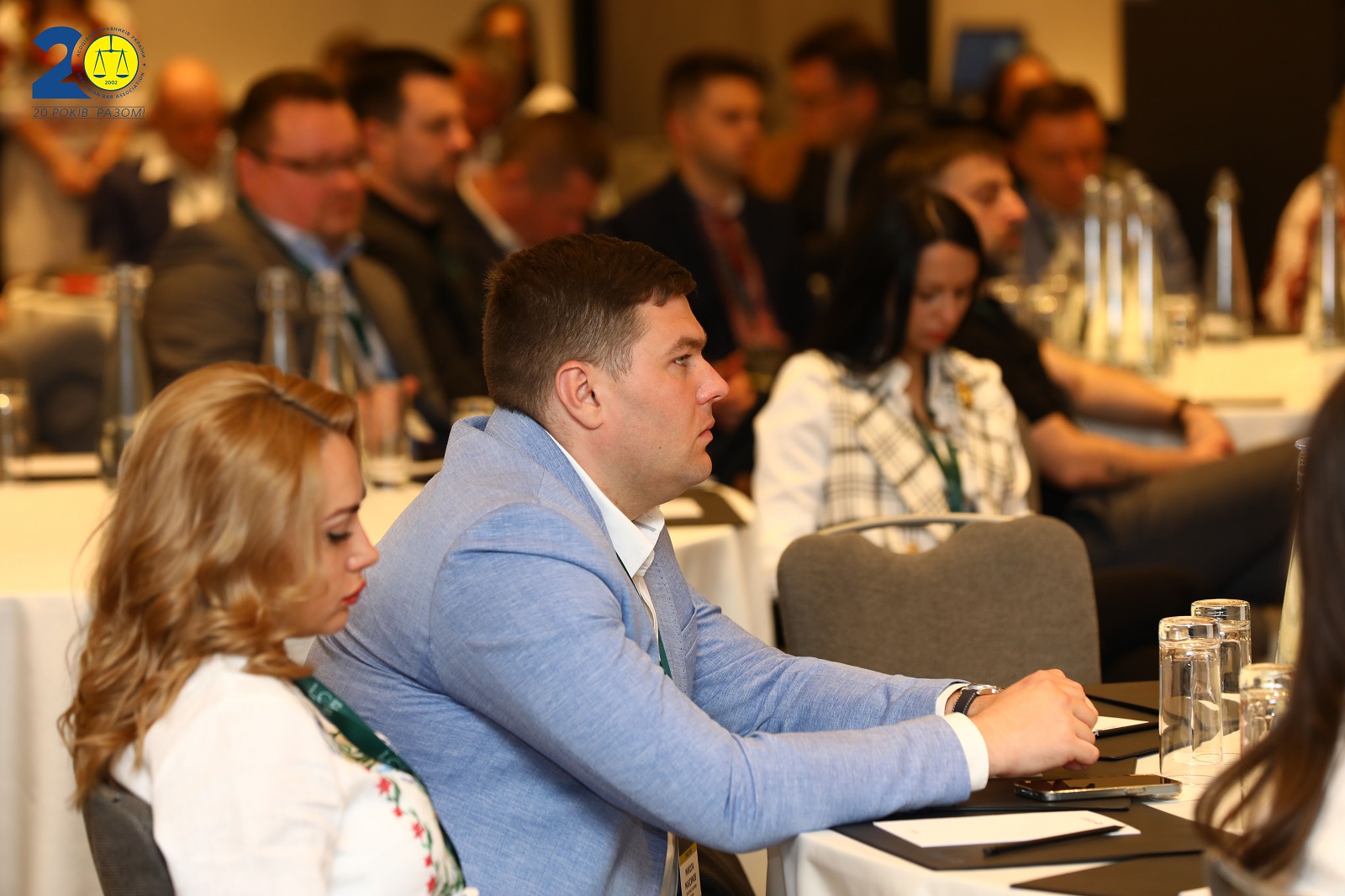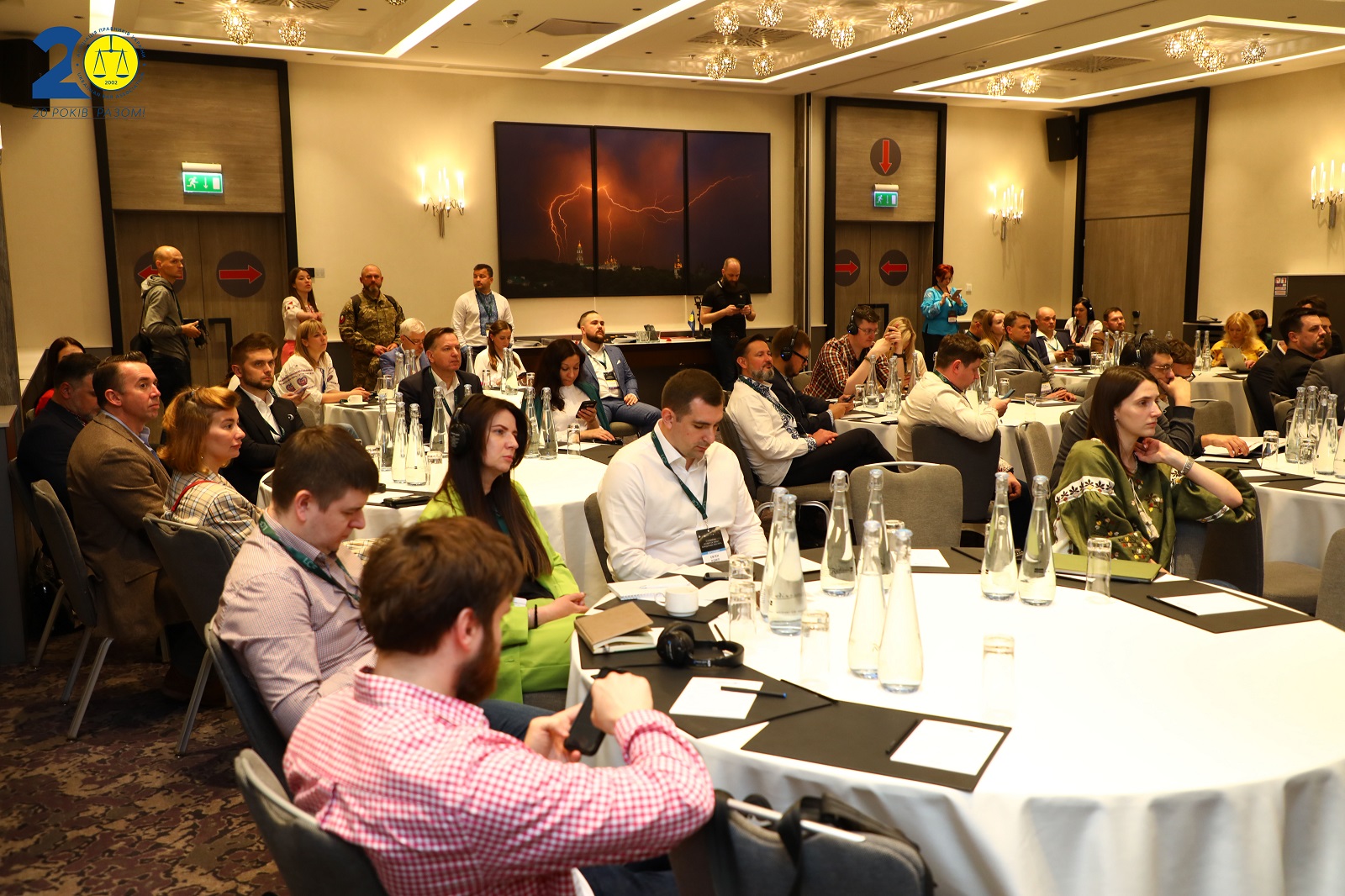Ukrainian legal business during the war. UBA held the 17th Forum "Development of the Legal Services Market"
How did the Ukrainian legal business during the year adapt to the new realities caused by the full-scale war? What problems and challenges did the legal market face and how does it solve them in view of the perspective of post-war reconstruction and restoration of Ukraine? These and other questions were tried to be answered by the participants of the 17th Forum "Development of the Legal Services Market", held by the Ukrainian Bar Association (UBA) on May 18, 2023 in Kyiv.
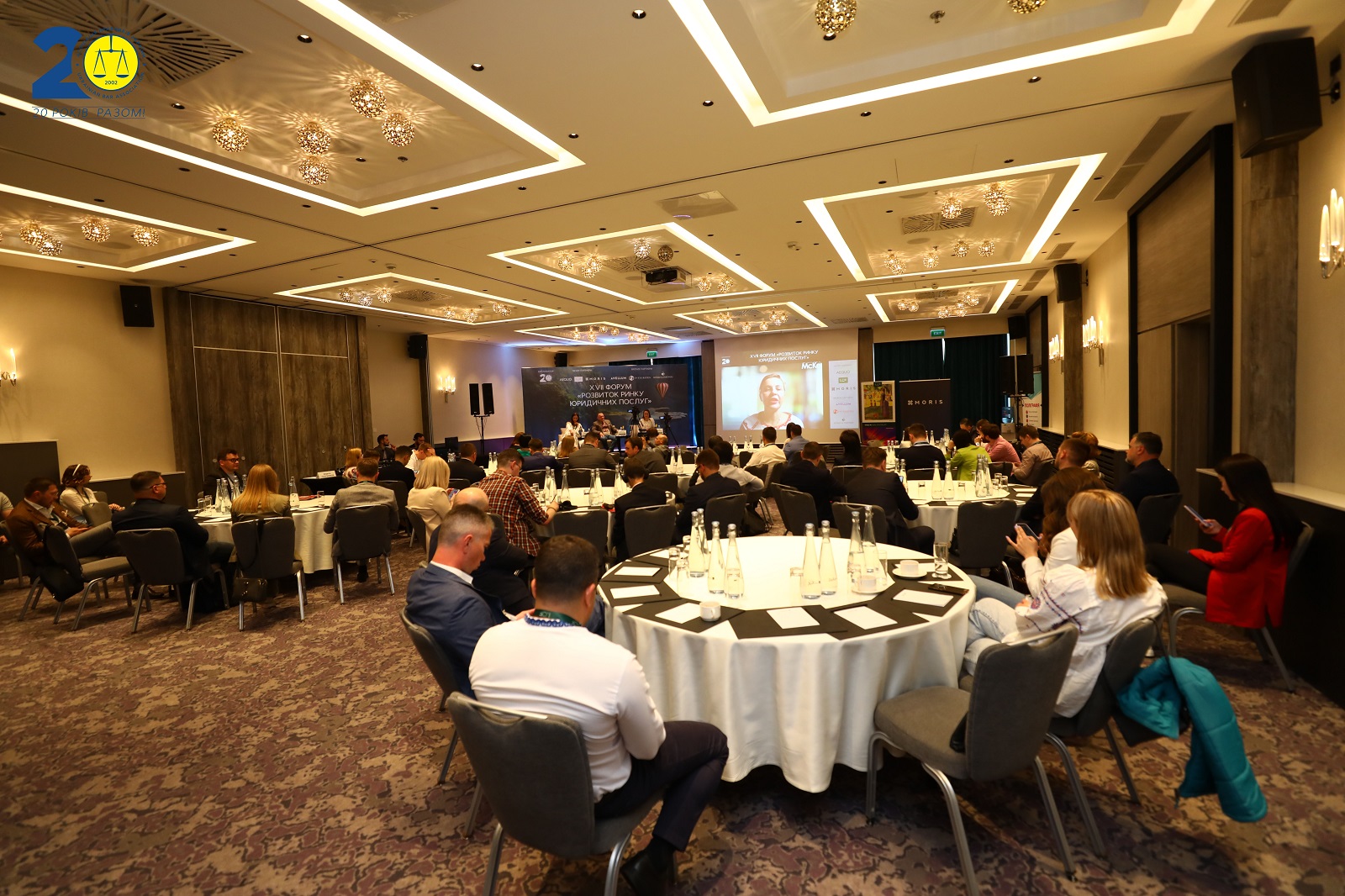
At the opening of the Forum, Anna Ogrenchuk, the UBA President, Co-founder and Managing Partner at LCF Law Group, addressed the audience with a welcome speech. She reminded that the XVII Forum was supposed to take place in March 2022, but the full-scale war launched by Russia against Ukraine broke all plans.
“I think back to our first surveys of market participants in the first months of the full-scale invasion. The heads of law firms were totally pessimistic — from the complete stoppage of the market during the war to the loss of their jobs. But we survived an extremely difficult year for the country, for business, for people. Our subsequent studies of the legal services market have shown that it has survived, adapted and stabilized. And this is the most important thing," the UBA President stressed.
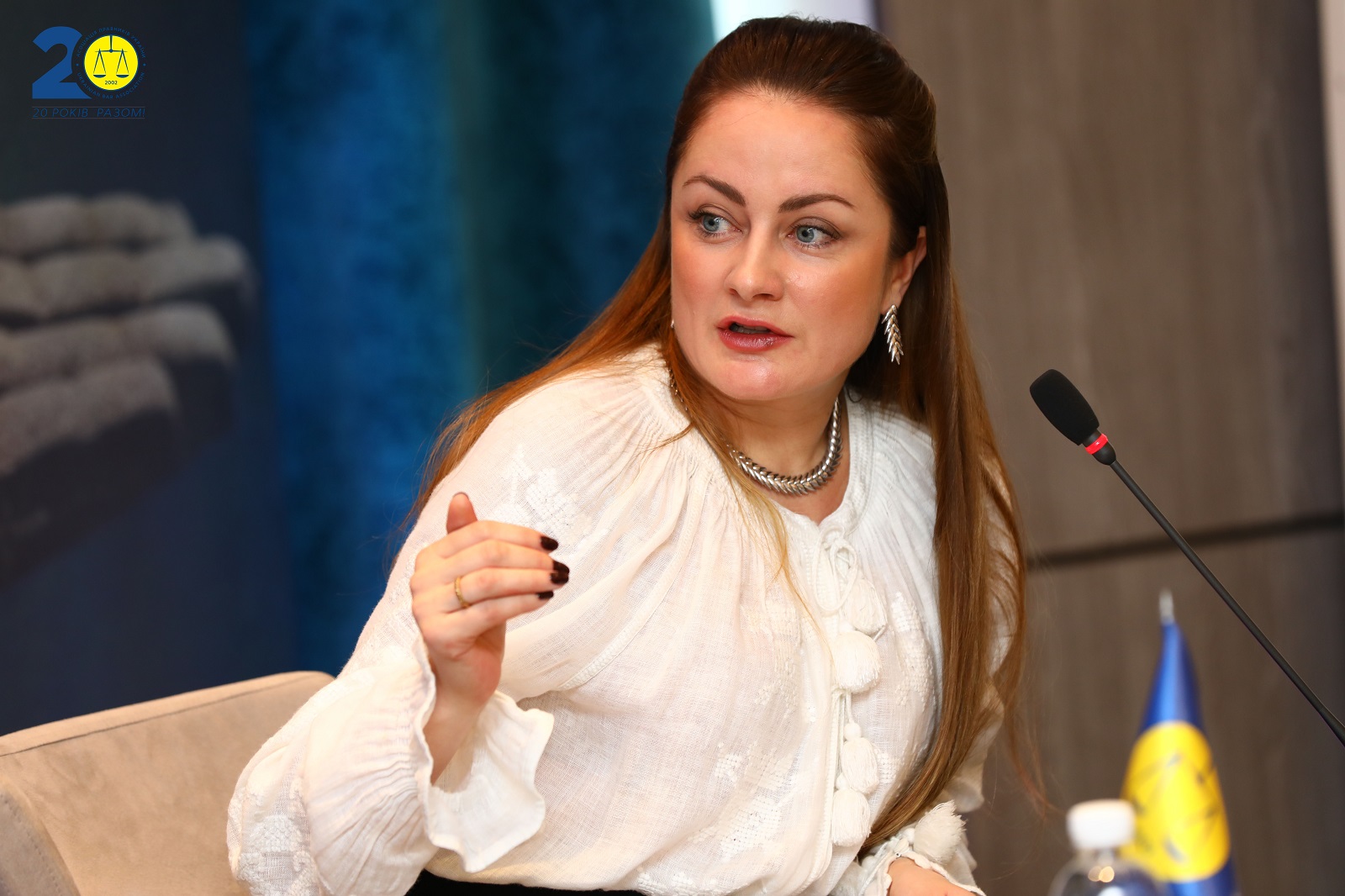
Anna Ogrenchuk emphasized that almost every second law firm has employees who are currently protecting the country in the ranks of the Defense Forces. Unfortunately, there are also the UBA members among the fallen and wounded soldiers. The President of the Association also noted the colleagues from the regions who were the first to experience all the cruelty of the enemy, and now are in the war zone and record the crimes of the Russian invaders.
"Today, as always, we united all market participants: small, medium, large businesses, both with Ukrainian and foreign investments. There are inhouses here, and representatives of law enforcement agencies and the judicial system, even despite the challenges of recent days. That is why the agenda is as full as possible. Each of you can tell the story of your company in the conditions of full-scale war, about problems, challenges and solutions, experience of relocation, internship abroad. We will talk about the realities and prospects of creating military justice. And, of course, about the reconstruction of Ukraine and our European integration future," summed up the UBA President.
The participants of the first session of the Forum, moderated by Anna Ogrenchuk, discussed problems and challenges for the legal market in the conditions of the full-scale war. In particular, they reflected on how the legal business "survives" the war, and shared practical cases of adaptation of their law firms to the conditions of martial law.
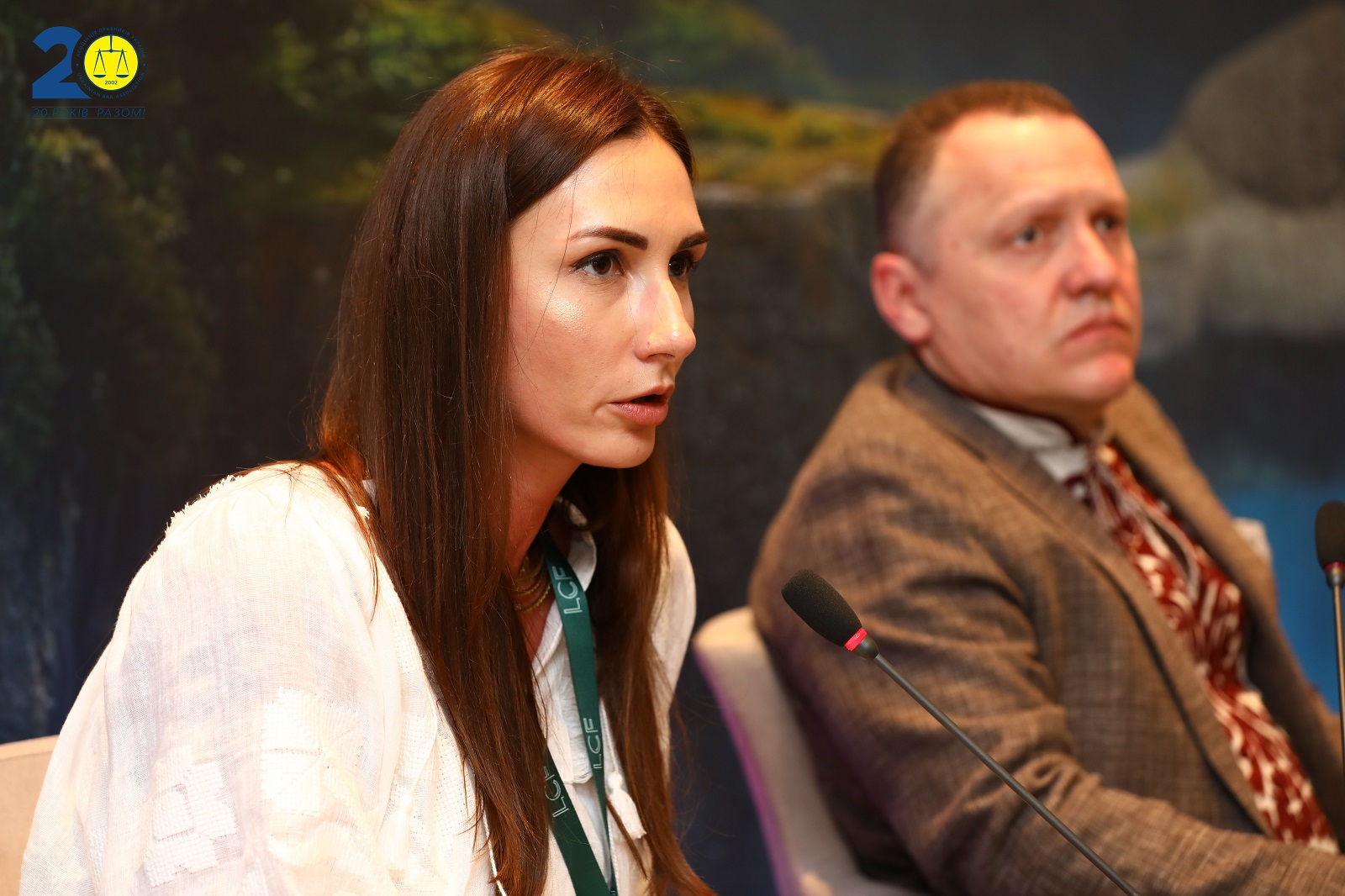
Tetyana Titarenko, Managing Partner at LEGRANT, a law firm specializing in infrastructure, international trade, maritime law, port management, etc., said that during six months of 2022, the work of Ukrainian seaports was blocked due to hostilities — accordingly, without work all this time there was also her company. The opening of the "grain corridor" became a lifeline.
"Many new companies have appeared on the transportation market, so we had to adapt to the challenges very quickly," said Tetyana Titarenko.
The LEGRANT managing partner said that now the ports are working regularly, albeit with certain technical limitations, and at the same time it has become possible for ships to leave the Mykolaiv and Olvia ports. She also emphasized the prospects for the development of ports in the Danube region.
"I believe that there will be a lot of work for maritime and infrastructure lawyers," added Tetyana Titarenko.
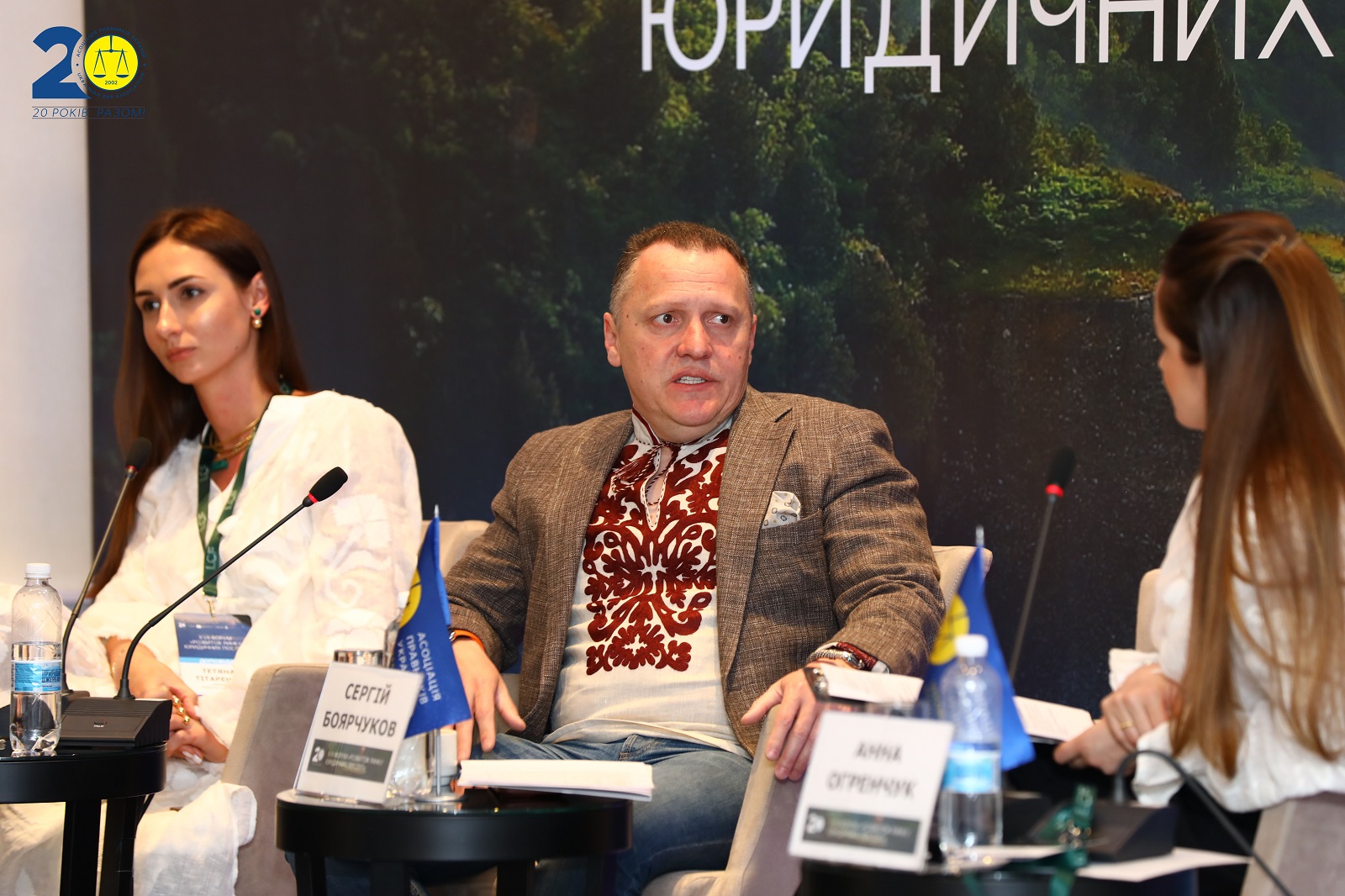
Sergii Boyarchukov, Managing Partner at Alekseev, Boyarchukov and Partners Law Firm, said that after the pause of the first month of the full-scale war, in April — early May 2022, he decided that it was time for the company to return to work. As of May of that year, his office already had 19 attorneys, up from 37 before the invasion began. The law firm team now numbers 31.
"Today, our team is very monolithic. We have radically reborn and turned into a completely different company from the point of view of management. We crawled out of this hole thanks to nicheness and professionalism," emphasized Sergii Boyarchukov.
He added that there is a lot of work in the company now: "We are 150% loaded."
Lina Nemchenko, Partner at Baker McKenzie, said in her online speech that from the first days of the invasion, the company's priority was the safety of people: the families of workers were evacuated, and those who were forced to stay were helped. Also, according to her, at Baker McKenzie, no one was fired and no one's salary was reduced, and the office was not closed.
In addition, Lina Nemchenko spoke about how, at the beginning of the invasion, the company had difficulties in establishing communication with its customers, most of whom are international.
"They had questions every day. At first it was difficult for us to respond to them, but then we returned to the practice of responding to the client within 24 hours," she said.
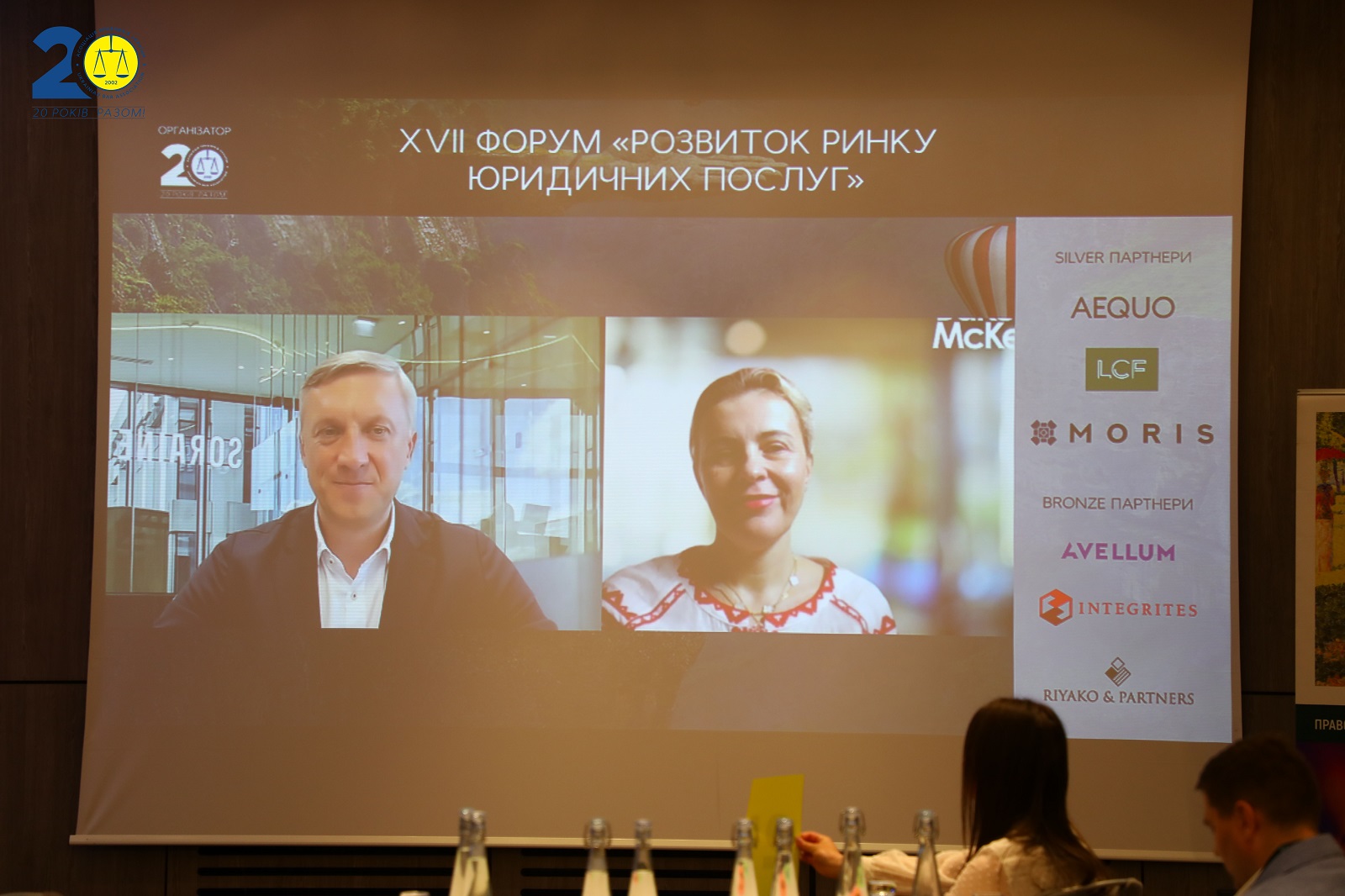
Laimonas Skibarka, Managing Partner at Sorainen, who also spoke online, said he was impressed with how the Ukrainians learned to manage in war conditions. He said that in the Baltic countries law firms from the first days of the full-scale war began to support Ukrainians and stopped serving Russian clients.
According to Mr. Skibarka, the return of large international law firms to Ukraine depends on the situation in the country. At the same time, he expressed confidence that after the victory of Ukraine, many investors will come to it.
The second session of the Forum was devoted to the realities and prospects of military law and military justice in Ukraine. It began with a video interview of Eugene R. Sullivan, former senior judge of the US Court of Military Appeals. Mr. Sullivan explained how the military justice system works in the United States. He also expressed the opinion that in order to form its own system of military justice, Ukraine needs to take as a basis the US and UK systems of military courts and other systems that imitate these two.
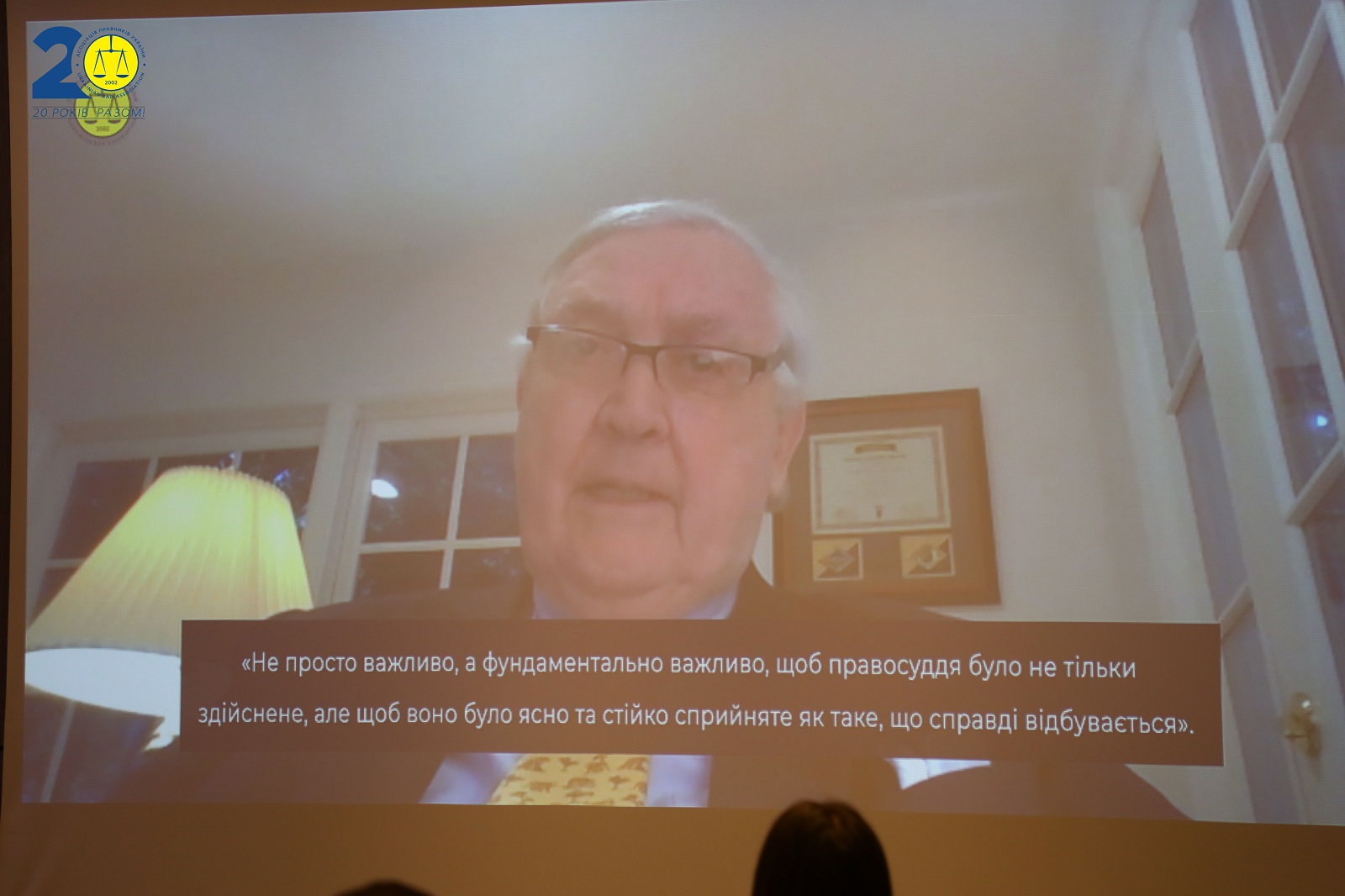
Eugene R. Sullivan said that he would be happy to cooperate with Ukraine to create a proper system of military justice. He emphasized that Ukraine is obliged to ensure a fair legal system not only for civilians, but also for the military, who must have a separate justice system.
The second session was moderated by Andriy Romanchuk, the UBA Vice President, Managing Partner at MORIS. The participants of the session discussed the difference in the worldviews of a military person and a civilian, different approaches and decision-making conditions. The speakers also tried to answer the question of whether there is a prospect of creating a full-fledged military justice system in Ukraine. Another topic of discussion was war and military crimes, the most common war crimes since the full-scale invasion and their convictions.
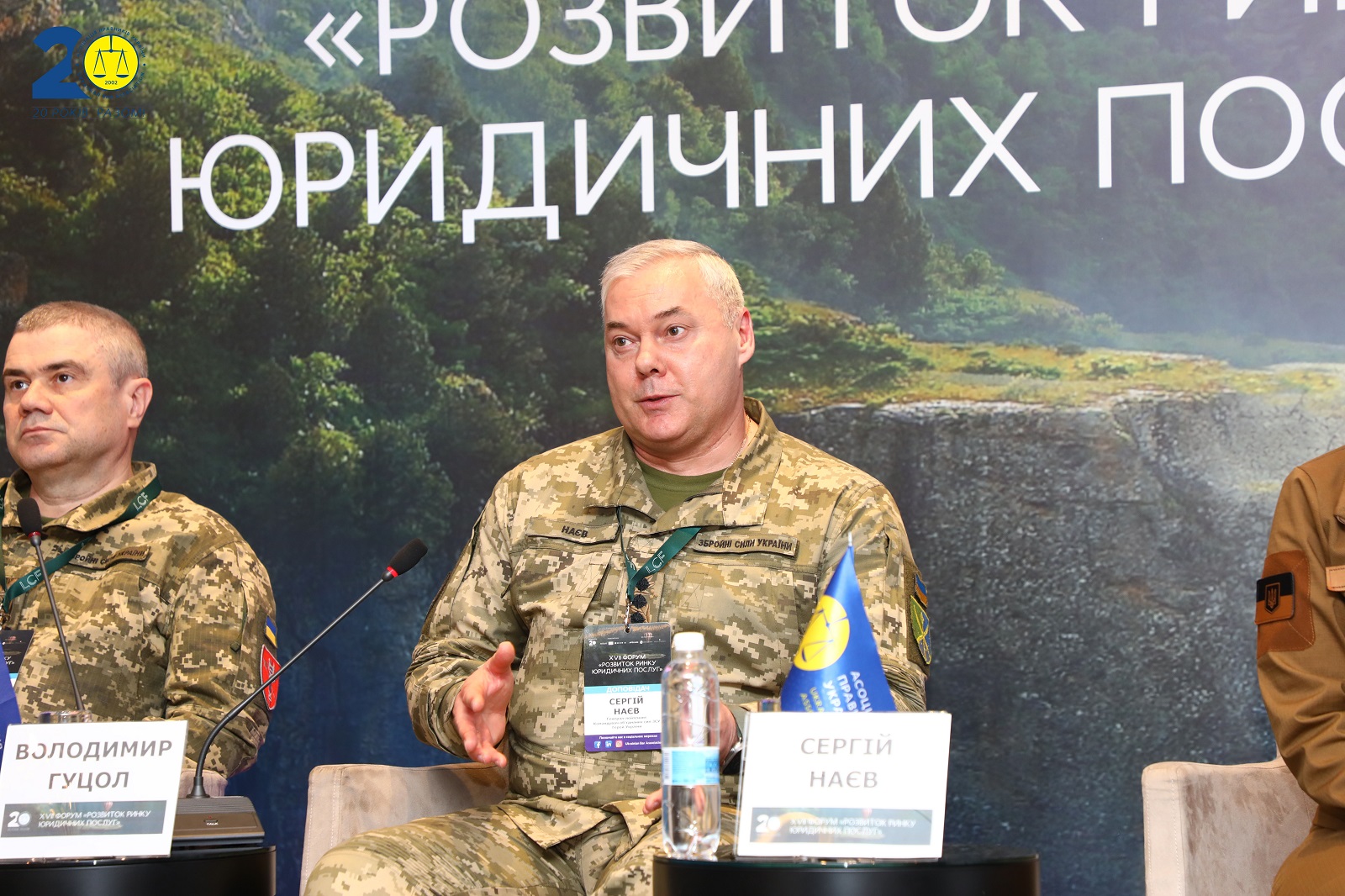
Serhii Naev, Lieutenant General, Commander of the United Forces of the Ukrainian Armed Forces (UAF), Hero of Ukraine, spoke about military training and operational skills. In particular, he emphasized that it is possible to become a military chief only after passing a certain path and acquiring special knowledge — first at a primary educational institution, and later at the National University of Defense of Ukraine. In view of this, Mr. Naev expressed the opinion that without special knowledge it will be extremely difficult for a civilian to correctly and adequately evaluate the actions of the military from a legal point of view.
Hanna Maliar, Deputy Minister of Defense of Ukraine, noted that it is difficult for a civilian lawyer to determine the proportionality of human rights and tasks of states, because he is taught even in higher education that a person and his rights and opportunities are at the center of the legal universe. At the same time, everything is arranged differently in the military sphere.
"If the main thing we [lawyers] put in the forefront is put in the forefront there [in the military sphere], we will simply lose the country," Hanna Maliar explained.
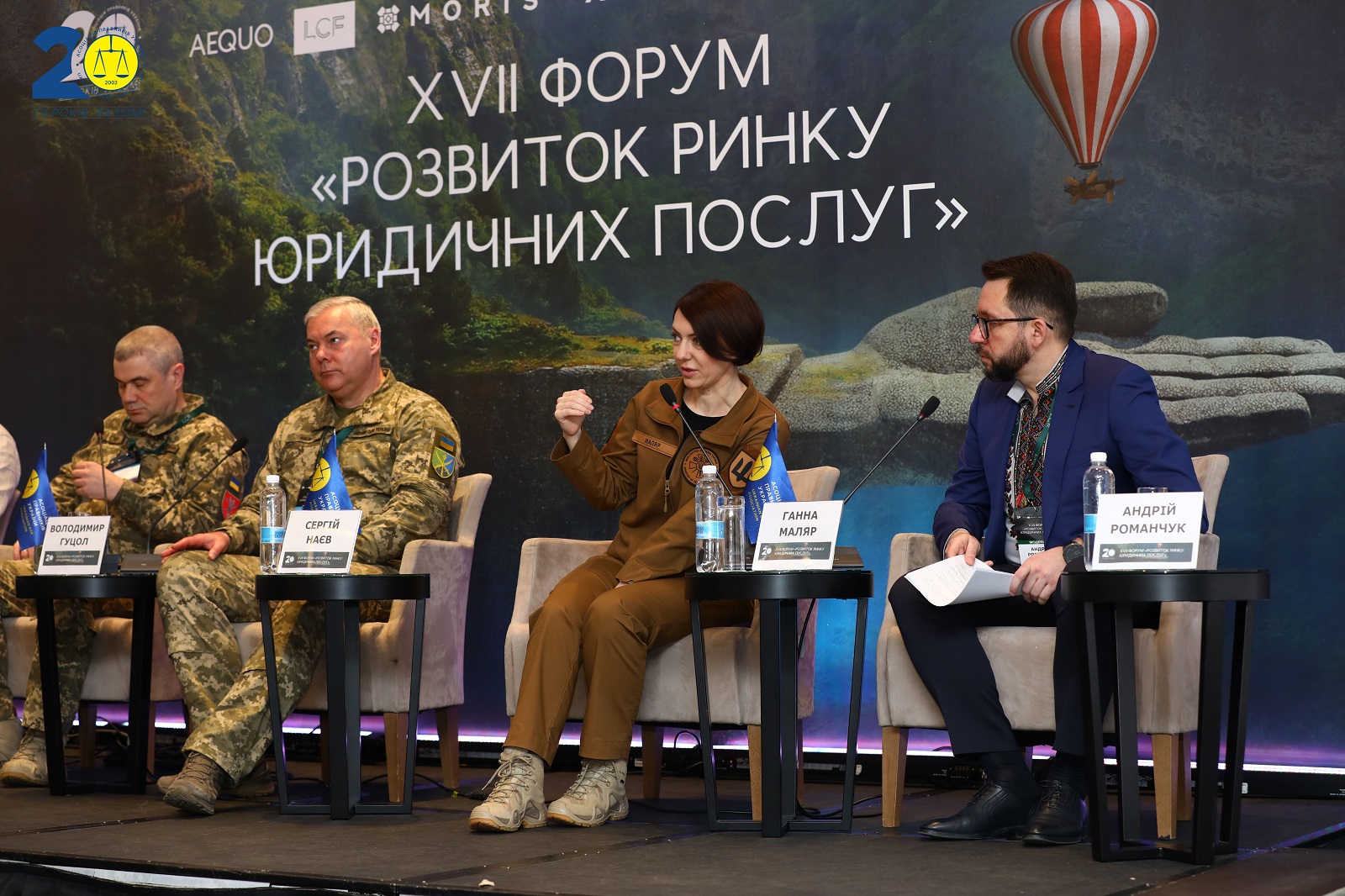
The deputy defense minister added that the preservation of the country is a primary value for the military. Accordingly, for the military to carry out this task in a coordinated manner, there is an approach to rights and freedoms that seems undemocratic to ordinary people.
According to Ms. Maliar, the elimination of military courts was a sabotage against Ukraine, and the future system of military justice should include not only courts and the prosecutor's office, but also military attorneys.
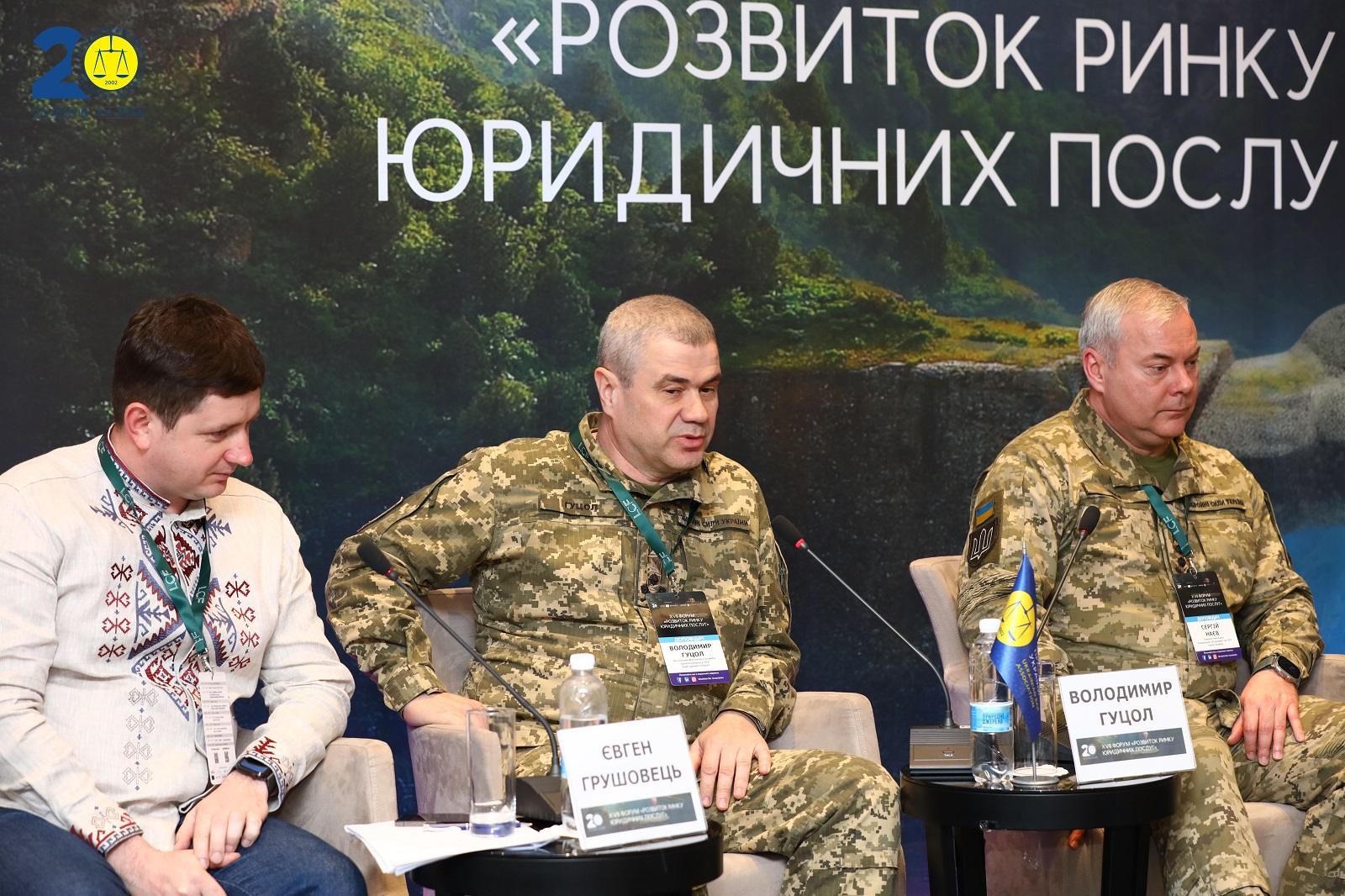
Volodymyr Hutsol, Head of the UAF Military Law and Order Service (MLOS), brigadier general, emphasized in his speech that the current state of law and order and military discipline in the Armed Forces is under control. He added that at the beginning of the Russian full-scale invasion, the level of crime in the Ukrainian army was minimal, but in the second half of 2022 it began to gradually increase.
"The main efforts [of the MLOS] are aimed at prevention of general offenses, prevention and detection of criminal offenses," Mr. Hutsol emphasized.
The head of the MLOS also talked about the crimes, the spread of which was caused by the Russian invasion, and the problematic issues of proving them.
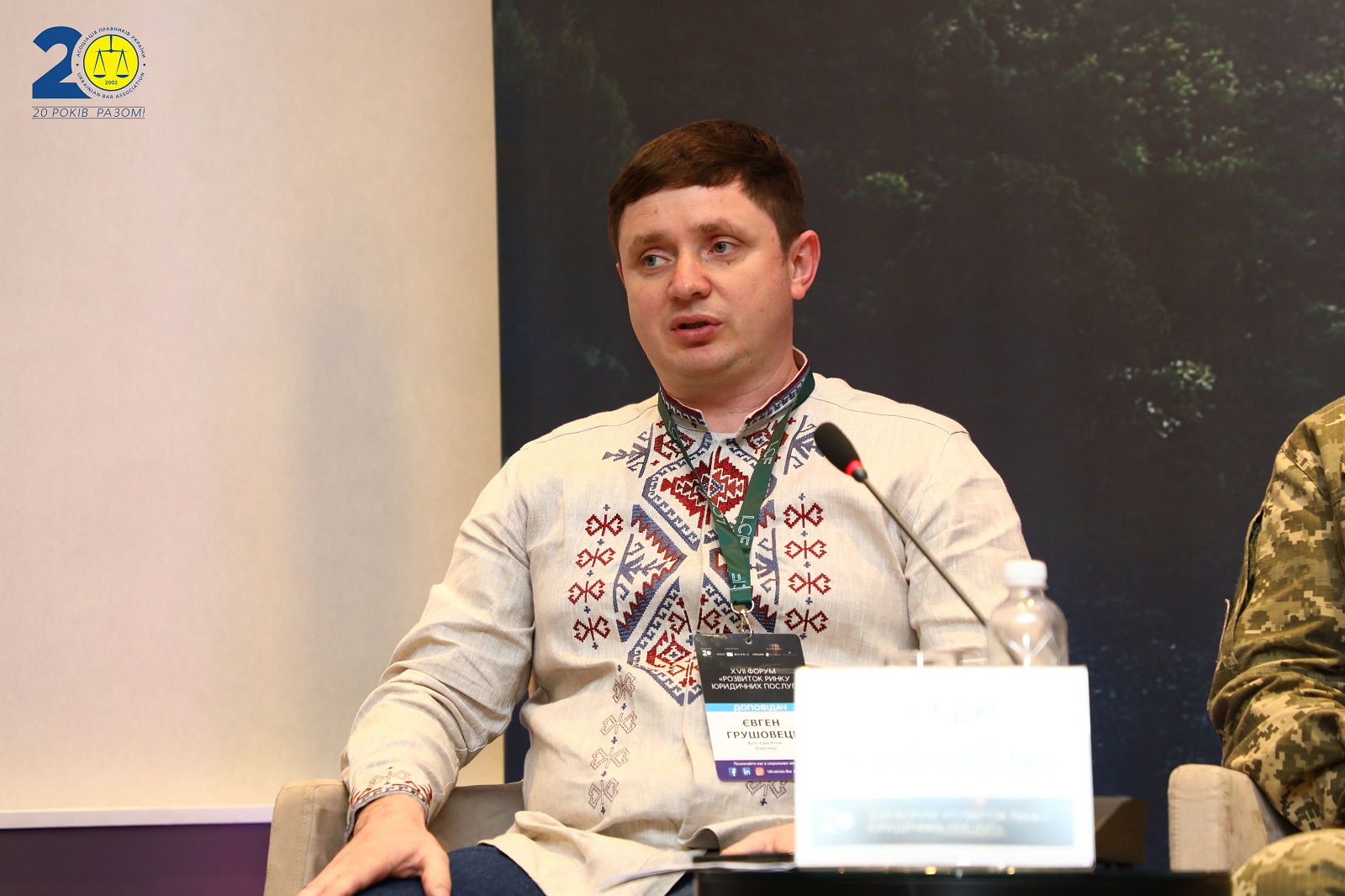
Yevhen Hrushovets, Partner at Ario Law Firm, Chairman of the Public Anti-Corruption Council under the Ministry of Defense of Ukraine, agreed with the opinion of previous speakers that a system of military justice is needed in Ukraine.
"There should be judges with relevant experience, there should be military prosecutors. Regarding military attorneys, I am not completely sure," he said.
The topic of the third session of the Forum was the reconstruction of Ukraine and European integration. Anna Babych, Member of the UBA Board, Executive Partner at AEQUO, acted as the moderator. Opening the session, she emphasized that Ukraine faces a rather difficult task, because due to a full-scale invasion, the country lost a third of its GDP and, given the pace of recovery, it may take more than 10 years to return the Ukrainian economy to its pre-war level.
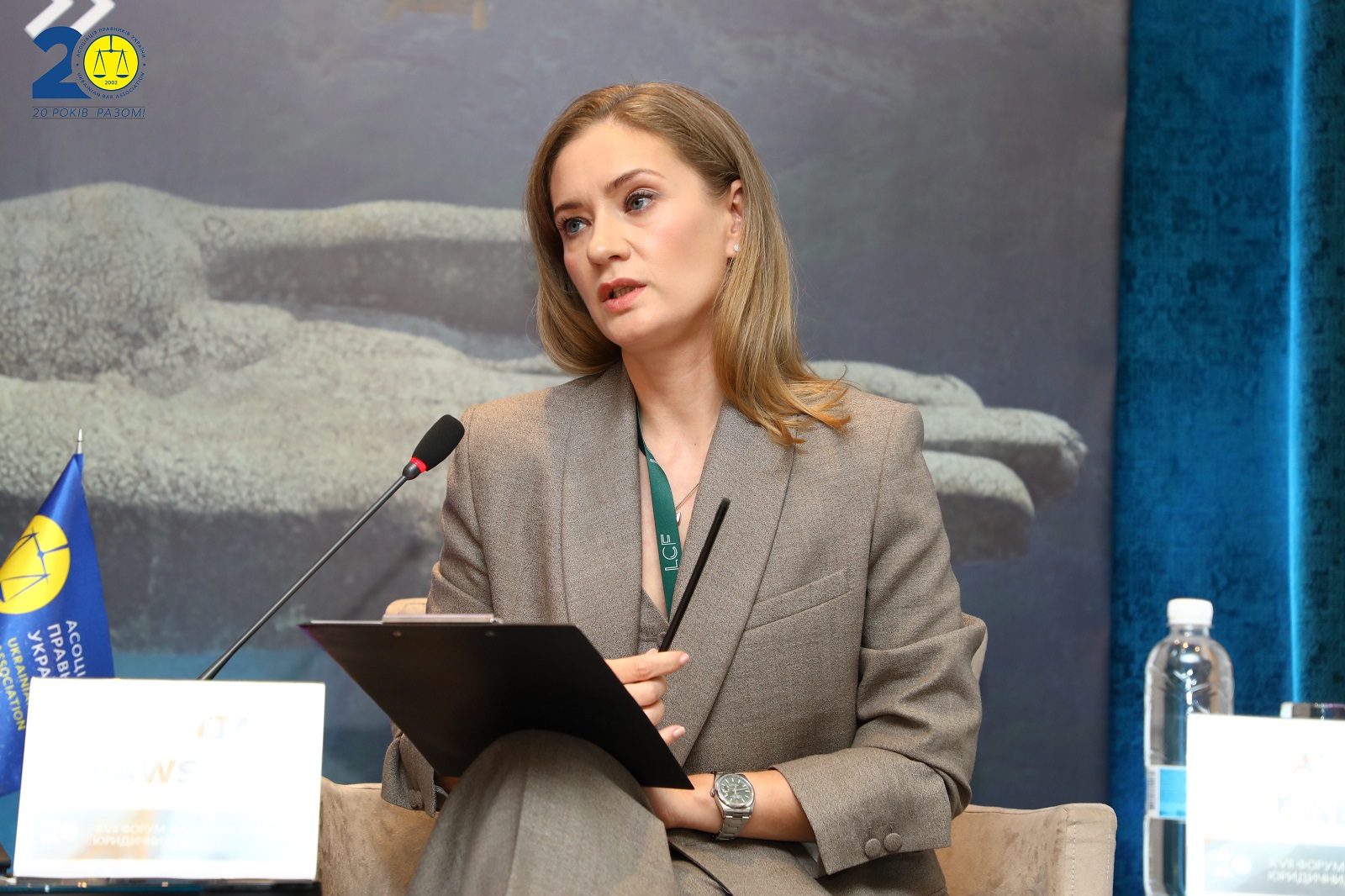
Anna Babych also noted that many production facilities in Ukraine are quite outdated, so the country should focus on building new ones instead of long-term and expensive modernization of the old ones.
Maryna Denysiuk, Senior Project Manager of the Office of Reforms of the Cabinet of Ministers of Ukraine, Team Lead of the Coordination of Ukraine Recovery Plan development, spoke about the features of the multi-stage implementation of the above-mentioned Plan, which has two main components — project and regulatory (legislative).
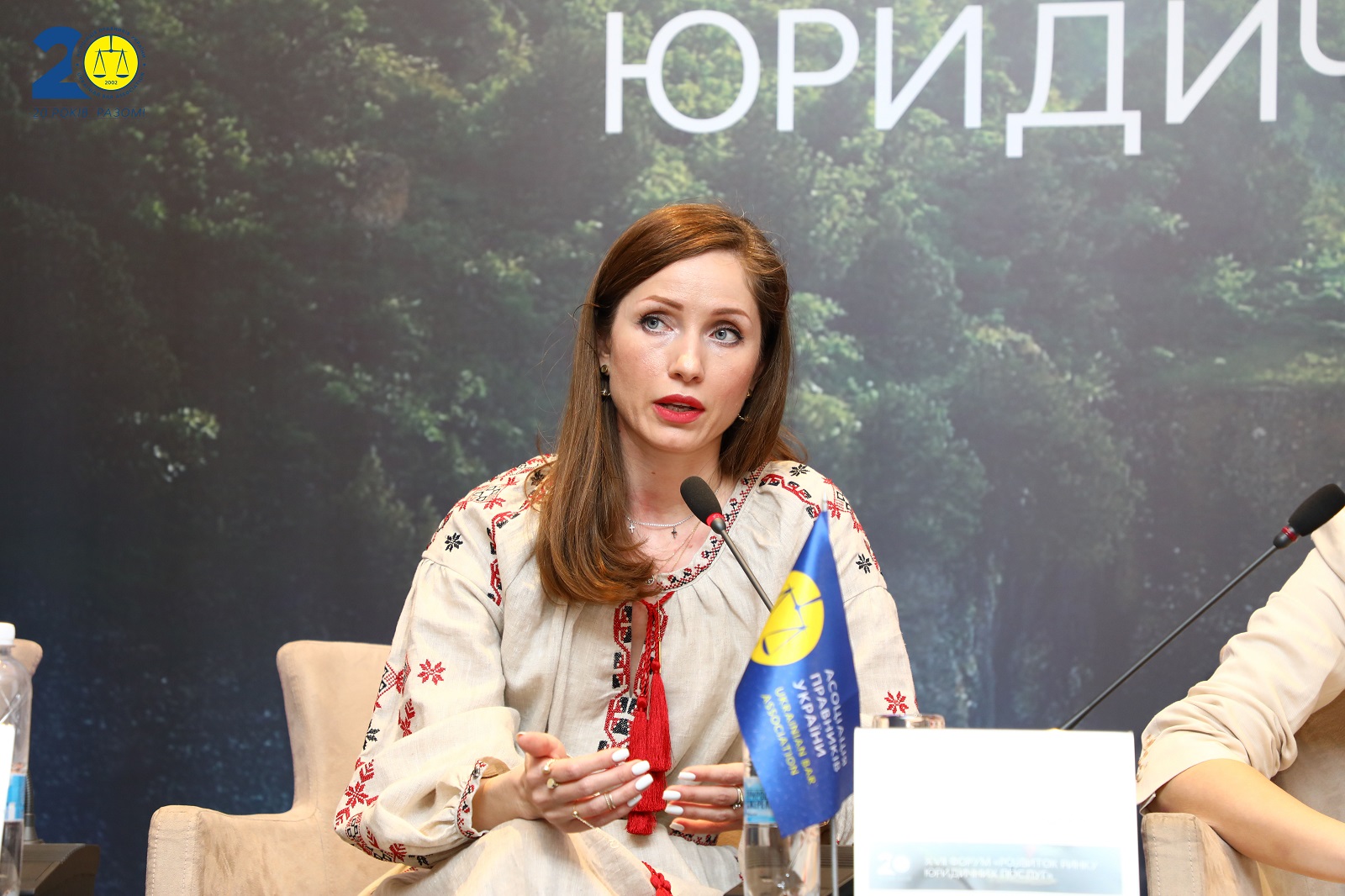
Ms. Denysiuk reported that the Cabinet of Ministers has identified five main priorities for funding for the coming year: restoration of the energy sector, housing reconstruction (in particular, the ‘eVidnovlennia’ (eRenovation) program has already started), restoration of infrastructure, demining and support of economic sectors. She also noted that the government is currently developing a program to attract investments to the western regions of Ukraine, which are the furthest from the war zone. In addition, Maryna Denysiuk reminded that the second Ukraine Recovery Conference will be held in London this June.
Anna Artemenko, Head of the Office for support of adaptation of Ukrainian legislation to the EU acquis, said that the idea of creating the institution headed by her was to provide intellectual support to the Verkhovna Rada of Ukraine during the preparation of all European integration documents, because the Parliament itself is the main link in the implementation of European integration reforms. According to her, the final task of the Office is to improve the quality of laws adopted by the Verkhovna Rada from the point of view of the European integration dimension.
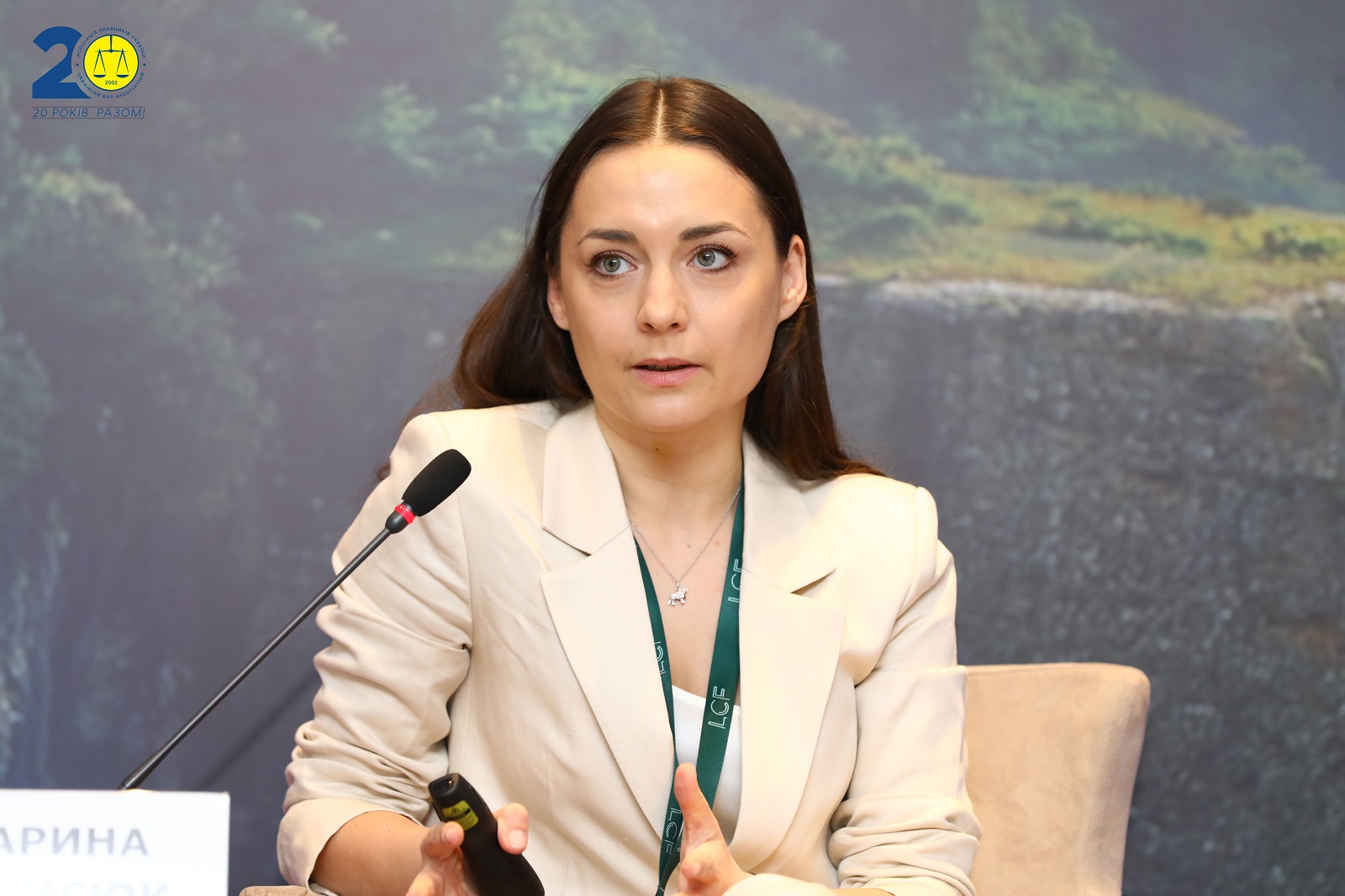
Ms. Artemenko emphasized that the main task of the country now is to achieve a certain level of readiness for membership in the European Union, and for this, in addition to political will, it is necessary to develop the economic component in order to compete decently on the European market.
Sebastian Lawson, Partner at Freshfields Bruckhaus Deringer, expressed his great admiration for Ukraine and its people at the beginning of his speech. He spoke about the features of successfully attracting investments for potential development and post-war reconstruction of the country, emphasizing the importance of the role of human capital in the system of this process.
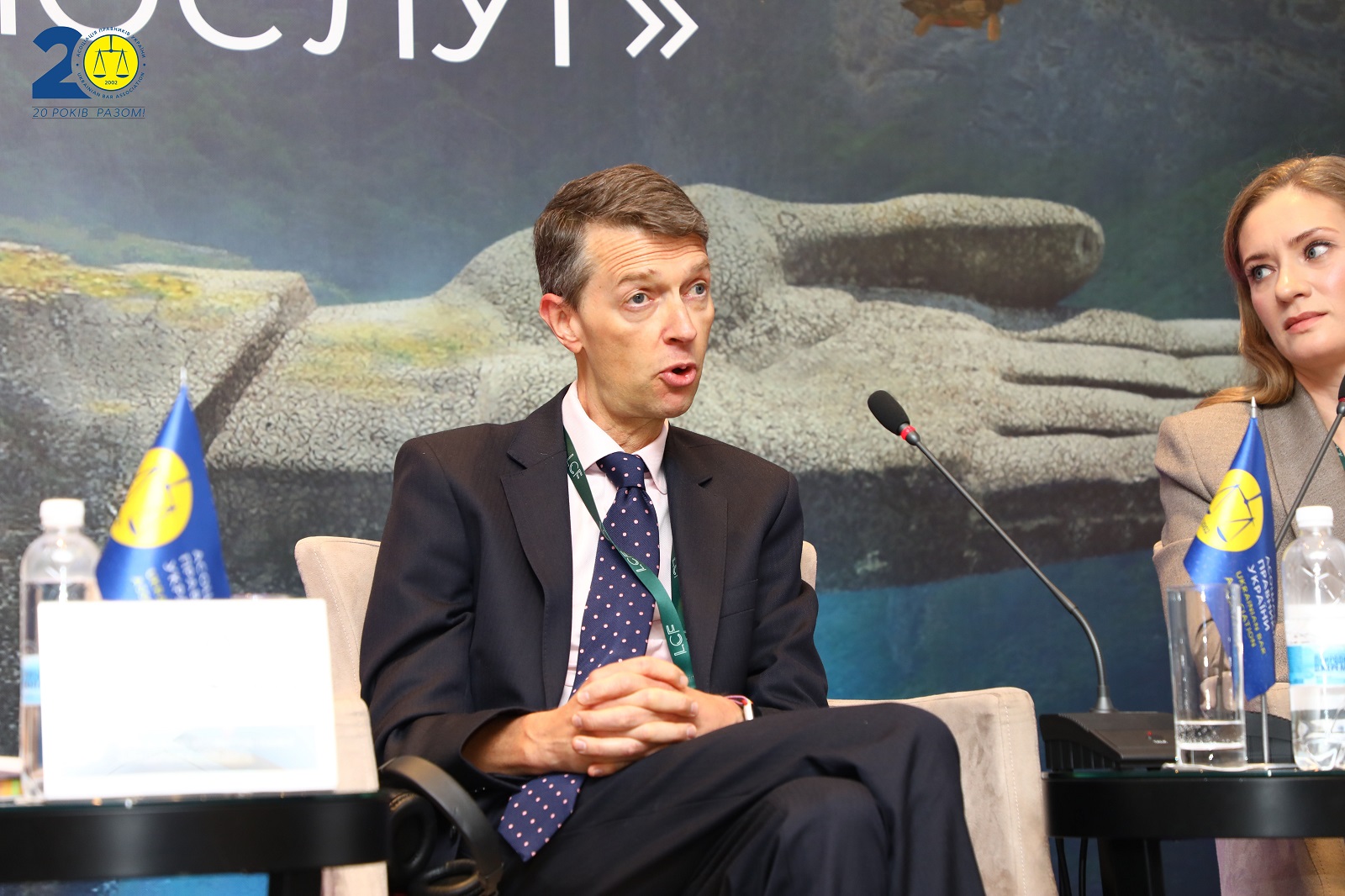
The speaker singled out three groups of investors that, in his opinion, are now available for Ukraine: 1) companies that have been present in Ukraine for a long time; 2) companies that focus directly on the reconstruction of the country; 3) companies that until today were not present in Ukraine and did not consider it as a market.
"The new reality will depend on how many companies of the 3rd group will come to Ukraine after the war," emphasized Mr. Lawson.
He added that his company is ready to help Ukrainian projects that need international legal support.
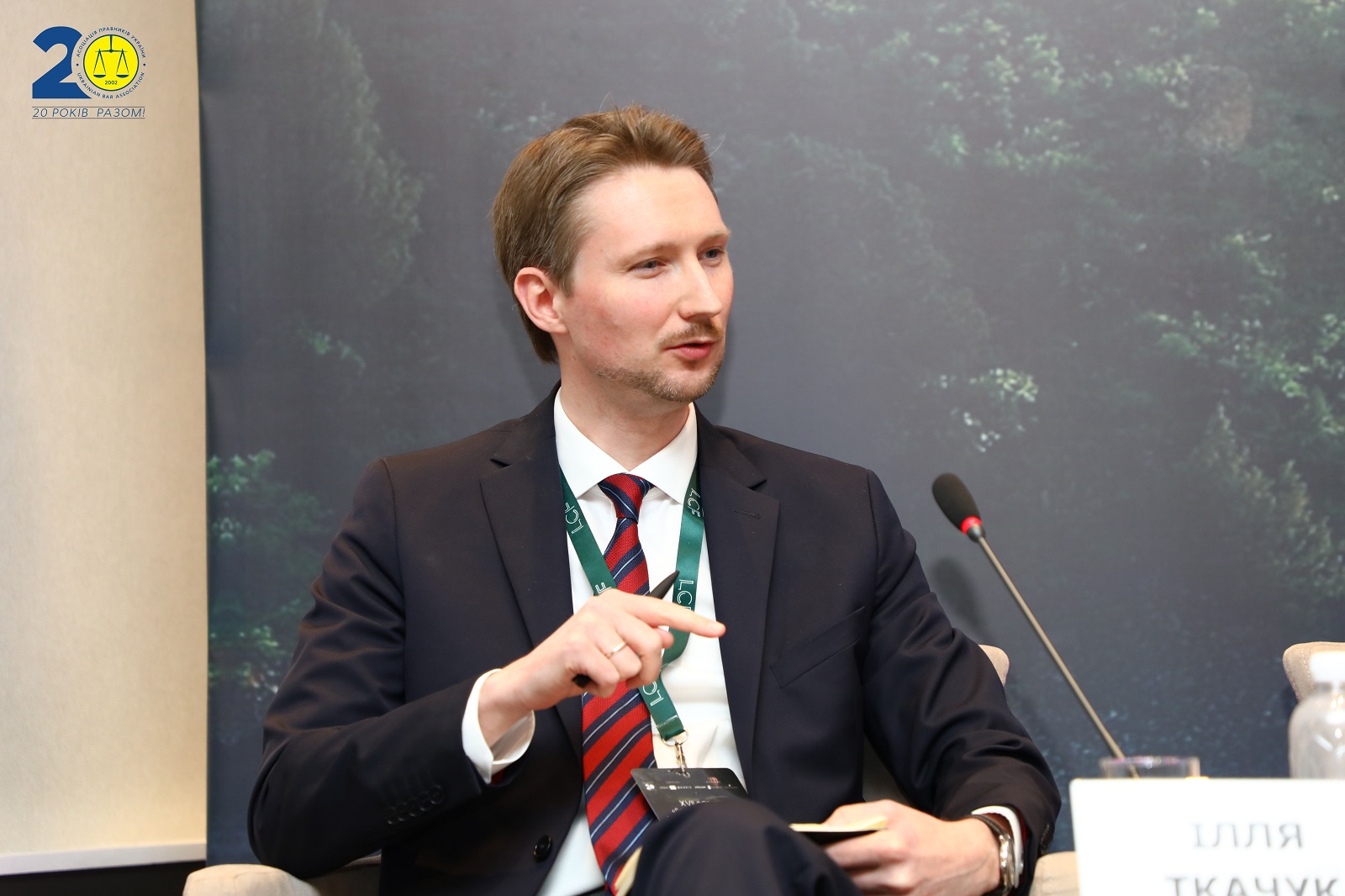
Illya Tkachuk, Senior Partner at INTEGRITES, Head of Corporate and M&A, drew attention to the attraction of private investments to the recovery of Ukraine and commented, in particular, on the problematic points that are currently restraining investors.
"European business, which is ready to invest in the restoration of Ukraine, often, unfortunately, does not know who to turn to and where to start," stated Mr. Tkachuk.
The participants of the fourth session of the Forum moderated by Mykola Stetsenko, Member of the UBA Board, Managing Partner at AVELLUM, talked about the issue of ethics in the legal market after the war.
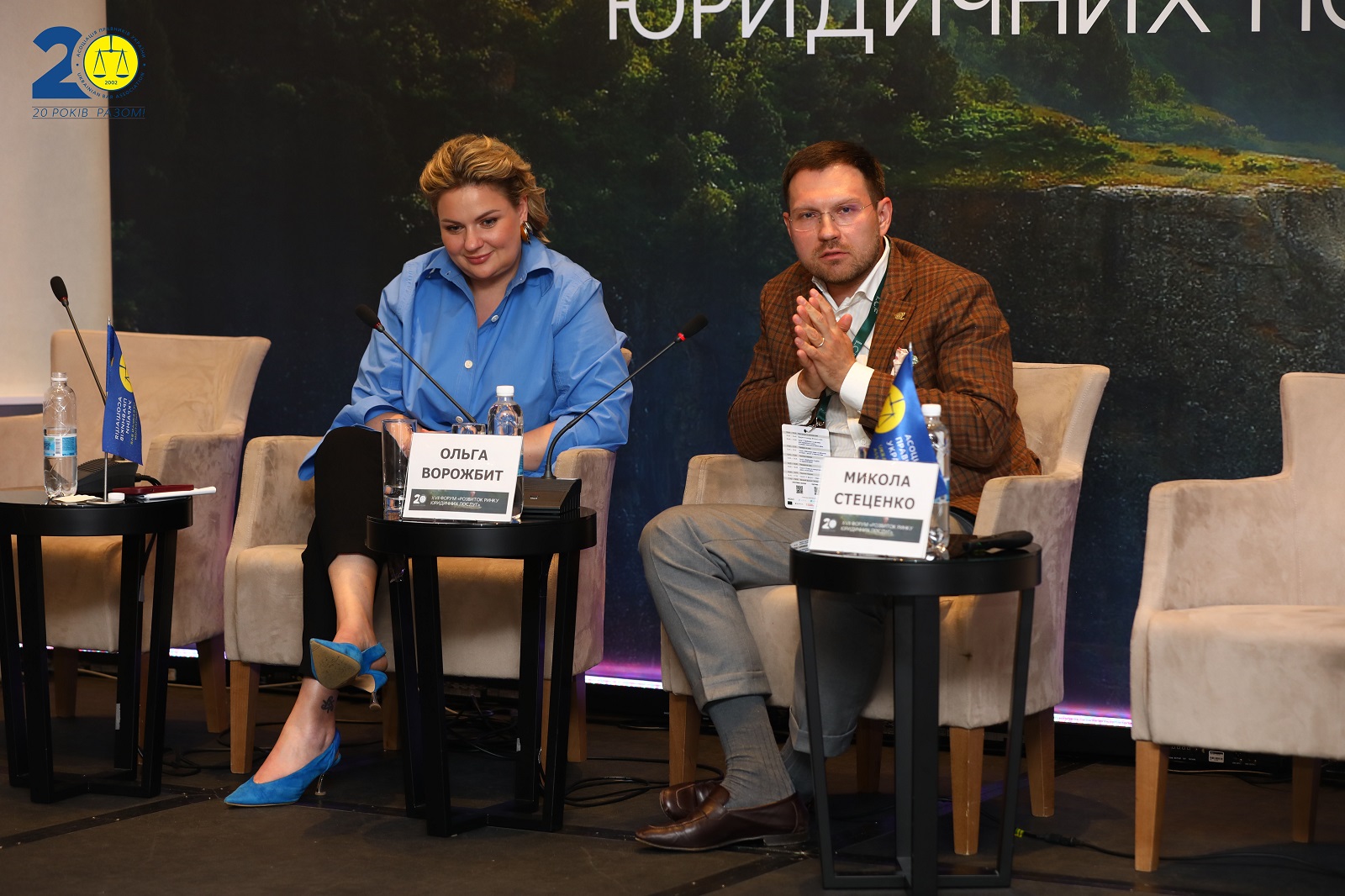
Olga Vorozhbyt, Partner at Kinstellar, presented the achievements of the working group on the preparation of the new Code of Professional Ethics for Lawyers. According to her, conflict of interests and its manifestations in various situations should be singled out among the current issues that concern practicing lawyers. Also, the issues of information confidentiality, information leaks, aggressive practices of attracting clients, misleading clients, providing recommendations and remuneration for such recommendations (referral fee) need to be resolved. Olga Vorozhbyt emphasized that the proposed rules provide for broader regulation compared, for example, to the rules of lawyer ethics.
"These are normal rules of the game, which are mostly followed anyway. They will simply be codified and generalized. And I really hope that they will be a support for lawyers in moments of doubt," said the speaker.
Nazar Chernyavsky, Partner at Sayenko Kharenko, and Oleksiy Didkovskiy, Co-Managing Partner at Asters, shared their vision of the approaches of law firms to the disclosure of certain parameters of their activities. Lawyers noted that now most of the financial indicators of companies are publicly available, at the same time, the issues of law firm structuring, the number of lawyers and conflicts of interest are also of interest.
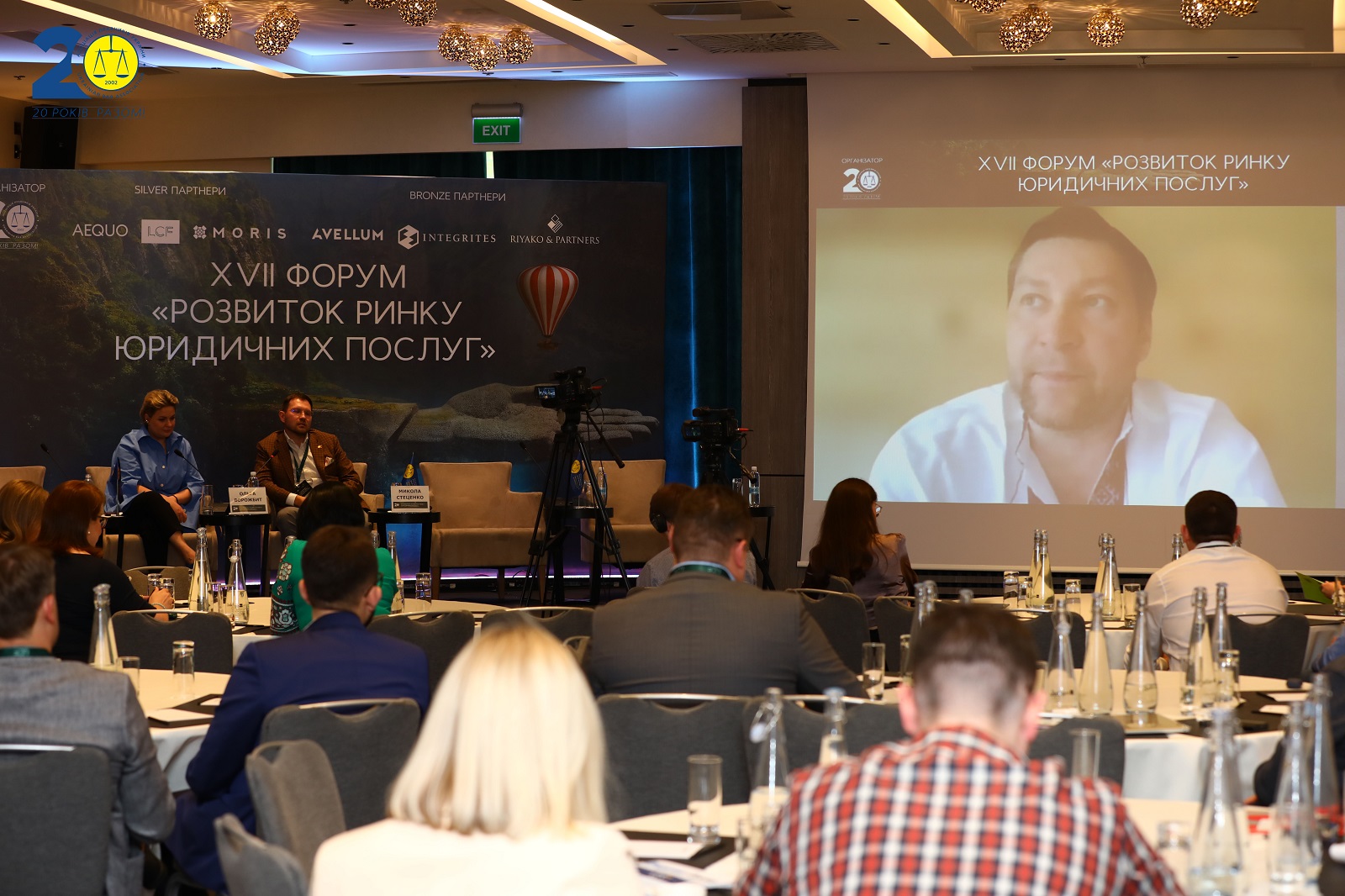
According to the results of the interactive voting of the audience of the Forum, the majority of those present in the hall supported the possibility of disclosing such indicators as the total income (turnover), the number of lawyers and the number of taxes paid.
The topic of the fifth session of the Forum was human resources. Iryna Nikitina, strategic advisor of legal partnerships, ideologist and researcher of LegalTalents.Report, who moderated this final session, presented the results of a survey conducted by LegalTalents.Report among the Ukrainian lawyers with work/internships experience abroad.

Ms. Nikitina also compared the results of LegalTalents.Report research in 2016, 2021 and 2023. According to her, interesting work, high remuneration and the possibility of career growth remain unchanged in the top-5 factors that lawyers pay most attention to in determining a successful career. However, in 2023, work-life balance entered this top-5 for the first time.
Oksana Daskaliuk, Senior Associate (Corporate and M&A), Allen&Overy Secondee 2022, Yuriy Nechayev, Partner at AVELLUM, Yevhen Pronin, Managing Partner at Pronin & Partners Law Firm, and Euvgen Riyako, Managing Partner at RIYAKO&PARTNERS Law Company, joined the discussion. They discussed challenges for the legal business in the field of personnel — such as the loss of qualified personnel, change in the structure of demand for services, the quality of legal education, — the problem of personnel shortage and practical solutions of it in today's conditions, relocation and myths about it.
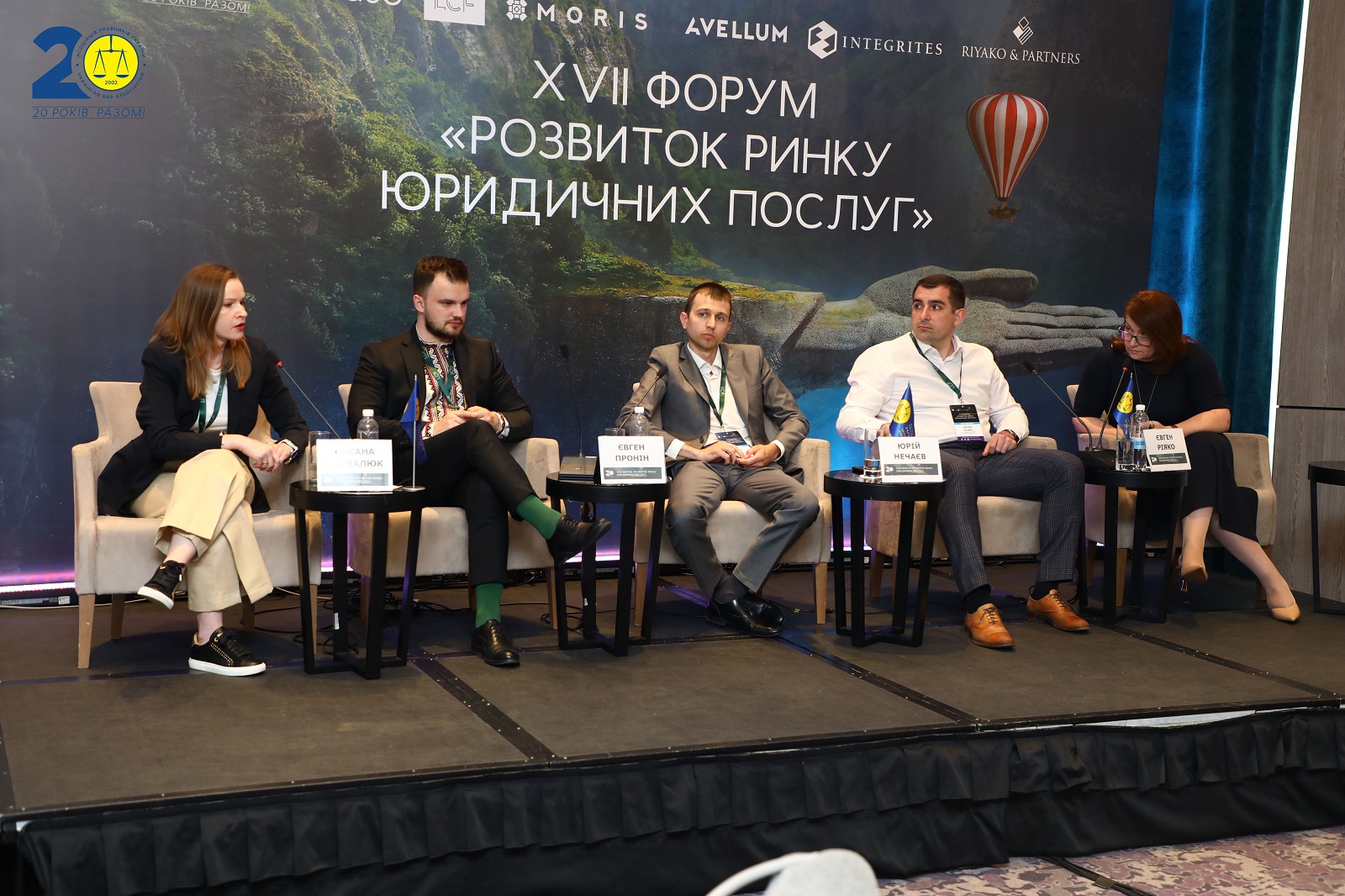
According to Yevhen Pronin, most of those lawyers who went abroad will not return to Ukraine. He said, there are juniors who went abroad, adapted there and are afraid to return because they paint in their heads a terrible picture of the war in Ukraine. At the same time, there are partners who lived abroad for a year and realized that they lack "Ukrainian drive".
